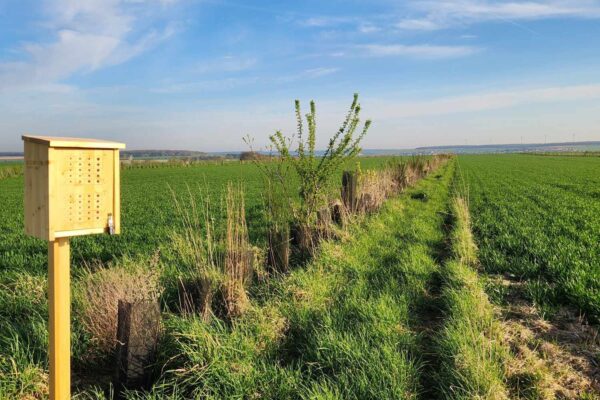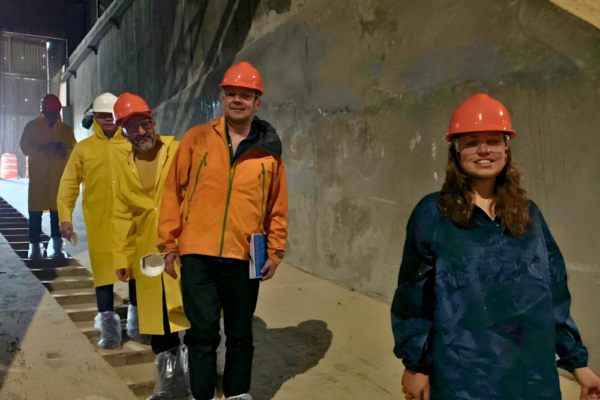Earthworm Foundation’s work often requires us to support companies that face challenging situations. Independently of the nature of the work and its starting point, our aim remains the same – to achieve positive social and environmental impact.
Our work with Feronia in the Democratic Republic of Congo is no different. Given recent reports that have formulated a number of criticisms regarding Feronia, we wanted – for the purpose of clarity and transparency purpose - to share an update on our work with them.
Feronia is an agribusiness growing palm oil in Congo for the local market. It is the economic centre of a region, with around 100,000 people living in, or around, its palm oil concession.
In 2018, because Feronia wanted to improve its practices, and its relations with its workers and local communities, they approached Earthworm Foundation for support. We carried out an initial scoping visit in April 2018. The aim was to assess the company’s working practices and community relations, so we could make suggestions for improvement.
Having made a first assessment, we realised many of the issues raised by NGOs and others concerning Feronia, including issues with local communities, were correct. In order to tackle such systemic issues (and avoid quick fixes that wouldn’t last), we recommended Feronia to first be clear on its overall environmental and social approach.
After several exchanges with Feronia in the second half of 2018, we got together in January 2019 for a two-day workshop with the senior management of the company and its investors (CDC Group, DEG, FMO and BIO) in order to review and revise its vision for the future.
The vision states the desire to become “a profitable agribusiness in Congo that benefits local communities and broader societies, and which inspires future investments in the region”.
It aims to achieve the following:
Achieve and promote social development and good governance
- Maintain transparent dialogue with all stakeholders
- Monitor and analyse stakeholder interaction
- Analyse grievances in order to reduce potential conflict
- Deliver direct investment to contribute to needs of local people
- Develop and improve infrastructure & livelihoods
- Collaborate with NGOs/CSOs
- Improve social conditions for workers
- Develop a plan to balance development with conservation
Achieve a healthy, safe and secure working and living environment, recognising human rights of communities and workers
- Protect and apply human rights as set out by United Nations
- Reduce security risks by training personnel and developing procedures
- Ensure a secure working environment
- Establish a credible culture of health and safety
- Reduce injury rates among workers through a training programme
Achieve responsible environment management
- Update and deliver an environment management programme
- Support development of participatory conservation and land use planning for all concession areas
- Identify, limit and mitigate environmental impact
Develop an effective and engaged workforce through fair and transparent labour practice
- Promote freedom of association
- Facilitate access to employee representation for all workers
- Administer fair and ethical recruitment and employment practices
- Establish a conducive working environment
- Reward workers in a fair and timely manner
In May 2019, we went back to carry out a second assessment, where we observed and flagged many other problems, including a weak community engagement process – i.e. gaps in the capacity of Feronia’s social programme, with issues tending to be dealt with in a reactive manner. These observations helped us to develop a long-term action plan with Feronia and its investors to start addressing some of these issues.
Earthworm Foundation understands the land claims made by nine communities and is fully supportive of the complaint mechanism currently ongoing with Feronia investor DEG. Earthworm Foundation also believes that solving land claims is critical for any future community development programme.
Since May 2019, our teams have been on three field visits of 15 days each. On November 1st, after intensive support to strengthen Feronia’s internal management system and map out key local stakeholders, we were ready to talk to the local communities about Earthworm Foundation’s work with Feronia.
84 people from the surrounding communities were present over the course of a six and half hour workshop which we organised.
It was a fruitful discussion, where staff from Earthworm and Feronia explained Feronia’s vision and documented the concerns that participants had regarding the vision. We also discussed ongoing grievances and talked about how Feronia could strengthen its relationship with surrounding communities, civil society and local administration.
Supporting an accessible and responsive complaints management process is core to this work, so the local stakeholder feedback has been integrated into our work to specifically address those concerns.
It is important to note that we have been and are open to collaborate with and respect the work of all NGOs and local communities in the area.
Earthworm Foundation therefore remains open to discussion on how we work with Feronia. Our support and recommendations will always be driven by our core values (Truth, Respect, Compassion, Humility and Courage).
We welcome feedback and those who have questions can contact us directly on email via info@earthworm.org.


